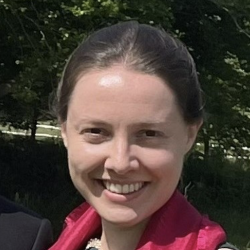During my secondary school years, life mostly revolved around various musical activities – orchestra, chamber music, recitals, and so on. When I came to make my university applications, I knew that I wanted to continue with my musical studies into higher education. Around that time, I had started to develop an interest in theory and analysis and had been doing some reading about composers in my spare time. The Music Tripos at Cambridge, with its broad curriculum spanning performance and academic studies, suited my interests well.
On the Music Tripos, we studied a comprehensive set of courses on history, stylistic composition, and analysis, starting with Gregorian chant and ending with modern living composers. These courses were supplemented by classes in ‘practical musicianship’ (such as score-reading and aural skills), and various elective subjects, including performance, which allowed us to explore our personal interests in more depth. I particularly enjoyed a series of elective lectures on Soviet music, and another on Schubert’s Winterreise. All our courses were supported by regular ‘supervisions’ – interactive one-to-one or small group tutorials, for which we would usually be set an essay or composition to prepare beforehand.
Outside the Tripos, there was a wide range of musical activities on offer across the University, with opportunities catering to every musical style and level of playing. I was able to take part in performances ranging from formal recitals to playing in a ceilidh band, run my college’s music society, and even produce an opera. At the same time, within my college I made friends who studied various other subjects, and with them took part in activities including college sports, ballroom dancing, language classes, and even going to careers events.
At some careers events in first year, I spoke with recent graduates who were working in banks and accounting firms. They were from a wide range of degree backgrounds, and all finding their jobs to be highly rewarding. I decided to attend a first-year spring insight week at Citi, where I did some work experience in a commodity and trade finance team. Having enjoyed the week, I went on to do an internship in the summer after second year, this time in a tax advisory team in an accounting firm. I found that the research and essay-writing skills developed on the Music Tripos lent themselves well to preparing tax advice, and ultimately joined the firm’s graduate training scheme.
Nowadays, both in my career and outside work, I continue to benefit every day from the skills I developed, the experiences I had, and the friendships I made during my time at Cambridge.
Clare Eagle is a tax advisor in EY’s financial services team in London. Clare advises alternative asset managers, primarily in the credit and hedge fund sectors, on UK and international tax matters relating to management group taxation, fund structuring and portfolio-level transactions. Clare is an ICAEW chartered accountant and a CIOT chartered tax advisor.




